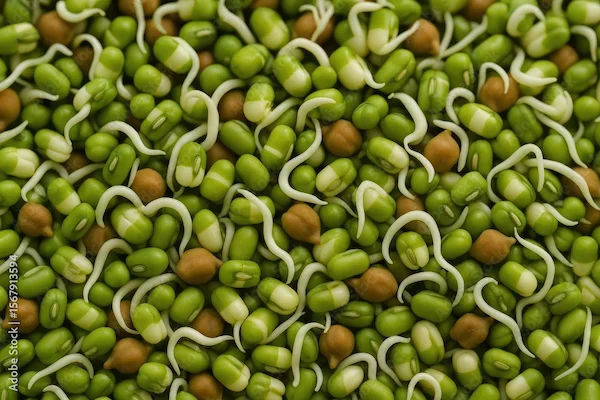Vitamin D3 Dosage Guidelines for Children in India
Learn the recommended Vitamin D3 dosage guidelines for children in India, including natural sources, deficiency symptoms, and when to consult a doctor.


Vitamin D3 is an essential nutrient that plays a crucial role in your child’s growth and development. It helps in building strong bones, supporting the immune system, and ensuring proper muscle function. However, many children in India suffer from Vitamin D deficiency due to limited sun exposure, dietary habits, and other factors.
In this article, we will discuss the recommended Vitamin D3 dosage for children in India, signs of deficiency, and simple ways to ensure your child gets enough of this vital nutrient.
Why is Vitamin D3 Important for Children?
Vitamin D3 (also called cholecalciferol) helps the body absorb calcium and phosphorus, which are necessary for:
- Strong bones and teeth: Prevents rickets (softening of bones) in children.
- Healthy immune system: Reduces the risk of infections.
- Muscle function: Supports proper muscle movement and strength.
Since sunlight is a primary source of Vitamin D, children who spend little time outdoors or live in polluted or cloudy regions may not get enough.
Signs of Vitamin D Deficiency in Children
If your child has low Vitamin D levels, they may experience:
- Frequent bone pain or muscle weakness
- Delayed growth or short stature
- Fatigue and irritability
- Frequent infections (cold, flu, etc.)
- Soft skull bones (in infants with severe deficiency)
A simple blood test can confirm Vitamin D deficiency. If you notice these symptoms, consult a pediatrician.
Recommended Vitamin D3 Dosage for Children in India
The Indian Academy of Pediatrics (IAP) and global health organizations provide the following guidelines:
1. Infants (0-12 months)
- 400 IU (10 mcg) per day: Breastfed babies may need supplements since breast milk has low Vitamin D.
- Formula-fed infants usually get enough if they consume at least 500 ml of fortified formula daily.
2. Children (1-18 years)
- 600 IU (15 mcg) per day: This is the standard recommendation for healthy children.
- Higher doses (1000-2000 IU/day) may be needed if a child has deficiency (as prescribed by a doctor).
3. Children with Obesity or Malabsorption Issues
- May require 2-3 times the usual dose due to poor absorption.
4. Treatment for Severe Deficiency
- A doctor may prescribe high-dose Vitamin D (50,000 IU weekly for 6-8 weeks) followed by maintenance doses.
Note: Always consult a pediatrician before giving supplements, as excess Vitamin D can be harmful.
Natural Sources of Vitamin D for Children
While supplements help, natural sources are equally important:
1. Sunlight Exposure
- 10-30 minutes of midday sun (between 10 AM 3 PM) at least 3-4 times a week helps the skin produce Vitamin D.
- Expose arms and legs (without sunscreen for short durations).
Consult Top Nutritionist For More Health Benefits
2. Vitamin D-Rich Foods
- Fatty fish (salmon, mackerel, sardines)
- Egg yolks
- Fortified milk, cereals, and orange juice
- Mushrooms (exposed to sunlight)
3. Supplements (if needed)
Pediatrician-recommended Vitamin D3 drops or chewable tablets can help meet daily needs.
Tips to Prevent Vitamin D Deficiency
1. Encourage outdoor play: Let your child play in sunlight for a few minutes daily.
2. Include fortified foods: Choose milk, cereals, and juices with added Vitamin D.
3. Regular health check-ups: Monitor Vitamin D levels if your child is at risk (dark skin, limited sun exposure).
4. Follow doctor’s advice: Avoid self-prescribing high doses.
When to See a Doctor?
If your child shows signs of deficiency or has conditions like:
- Chronic kidney/liver disease
- Obesity
- Malabsorption disorders (celiac disease, cystic fibrosis)
- Consult a pediatrician for proper testing and treatment.
Book a Vitamin D Test or Consultation
If you suspect your child has a Vitamin D deficiency, Apollo 24|7 offers:
- At-home Vitamin D blood tests
- Online pediatric consultations
Conclusion
Vitamin D3 is vital for your child’s health, and ensuring they get the right amount can prevent long-term complications. A mix of sunlight, diet, and supplements (if needed) can help maintain optimal levels.
If you have concerns about your child’s Vitamin D intake, consult a pediatrician for personalized advice.
Consult Top Nutritionist For More Health Benefits
Consult Top Nutritionist For More Health Benefits

Dr. Ramalinga Reddy
General Physician
5 Years • MBBS MD General medicine
Bengaluru
PRESTIGE SHANTHINIKETAN - SOCIETY CLINIC, Bengaluru
Dt. Ila Sharma
Clinical Nutritionist
18 Years • Master in food & Nutrition
Gurugram
VIPUL GREENS - SOCIETY CLINIC, Gurugram
Ms. Bhavana Shetty
Dietician
7 Years • DDHN & Masters in Clinical Nutrition & Dietetics
Bangalore
Apollo Sugar Clinic, Seetha circle bangalore, Bangalore
Dr Sumanth R
General Physician
2 Years • MBBS
Bengaluru
PRESTIGE SHANTHINIKETAN - SOCIETY CLINIC, Bengaluru
Dr. Sasikamalam
General Practitioner
1 Years • MBBS
COIMBATORE
Apollo Sugar Clinic Coimbatore, COIMBATORE
Consult Top Nutritionist For More Health Benefits

Dr. Ramalinga Reddy
General Physician
5 Years • MBBS MD General medicine
Bengaluru
PRESTIGE SHANTHINIKETAN - SOCIETY CLINIC, Bengaluru
Dt. Ila Sharma
Clinical Nutritionist
18 Years • Master in food & Nutrition
Gurugram
VIPUL GREENS - SOCIETY CLINIC, Gurugram
Ms. Bhavana Shetty
Dietician
7 Years • DDHN & Masters in Clinical Nutrition & Dietetics
Bangalore
Apollo Sugar Clinic, Seetha circle bangalore, Bangalore
Dr Sumanth R
General Physician
2 Years • MBBS
Bengaluru
PRESTIGE SHANTHINIKETAN - SOCIETY CLINIC, Bengaluru
Dr. Sasikamalam
General Practitioner
1 Years • MBBS
COIMBATORE
Apollo Sugar Clinic Coimbatore, COIMBATORE




